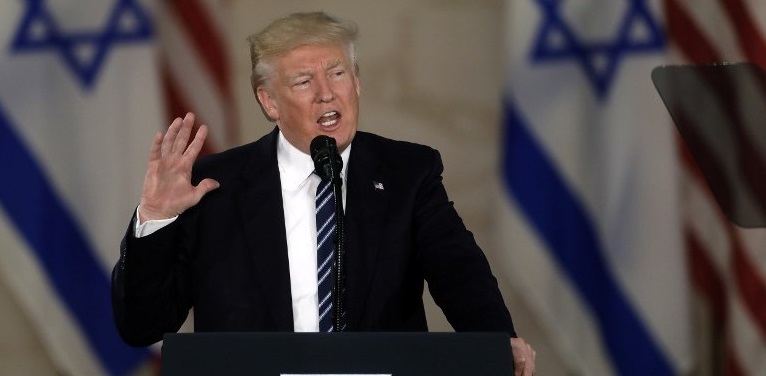
Peace: Arab States Not Waiting for the Palestinians
By: Prof. Eyal Zisser
The pundits have declared U.S. President Donald Trump’s Middle East peace initiative dead and buried before it has even been introduced. They predict it has zero chances of proving successful, over the resounding list of previous failures to resolve the Israeli-Palestinian conflict so far, but mostly because it is a Trump administration initiative.
Another reason for the skepticism the plan has encountered has to do with the fact that Washington does not hide its basic position, namely that Israel should not be expected to simply capitulate to international pressure and fall in line to appease the Palestinians’ demands and aspirations.
Trump’s premise is rooted in reality on the ground and the need to devise a realistic, sustainable solution, rather than an agreement based on absolute justice according to the Palestinian interpretation of the term.
The pundits’ predictions aside, Trump’s peace initiative is alive and well, and there are those who are willing to accept it as the basis for an Israeli-Palestinian peace deal, first and foremost the leaders of the moderate Arab countries, who have decided it was time to stop being held hostage by the Palestinian’s whims and overall inability to make historic decisions that will extricate them from this endless stalemate.
These Arab countries also seek to promote Trump’s plan to advance their own relations with Israel and promote their own regional interests. This is a significant development because, in the past, it was generally accepted that there was no way around the Palestinian leadership, as no Arab leader can – or would even try – to impose a peace deal that failed to meet 100% of the Palestinians’ demands.
As it turns out, this is no longer the case. Arabs leaders have grown tired of waiting for the Palestinian leadership to come to its senses. It seems they have also come to the realization that the impasse plaguing the Israeli-Palestinian peace process does not serve and is even detrimental to their interests. This is a different breed of leaders, younger and more determined, who are undeterred by domestic criticism.
King Mohammed VI of Morocco declared last week at the fifth International Conference on the Question of Jerusalem, which he led, that while the spiritual, religious and cultural character of the holy city must be preserved, a political agreement must be devised based on the current reality in which the city exists.
The Moroccan king’s comments came on the heels of a report that Saudi Crown Prince Mohammed has demanded that Palestinian Authority President Mahmoud Abbas accept the city of Abu Dis, just outside Jerusalem, as his capital, as well as agree that most of the Israeli settlements in Judea and Samaria remain in place.
Meanwhile, Egyptian defense officials have recently demanded that the Palestinians consider declaring Ramallah – the seat of Abbas’ government – as the Palestinian capital.
Many in Israel, myself included, have thought in the past that any change in Arab-Israeli relations was inextricably linked to progress in the Israeli-Palestinian peace process. The same was assumed in the early 1990s, when many believed that King Hussein of Jordan would never sign a peace agreement with Israel before a similar deal was reached with the PA and Syria. But at a certain point, Hussein decided that his kingdom’s interests were more important and, to his critics’ chagrin, he did the unbelievable and signed a peace deal with Israel in 1994.
Arab leaders are slowly walking down the same path. Saudi Arabia already allows Israeli planes to cross its airspace and Sudan is inclined to do the same. The Jordanian king met with Prime Minister Benjamin Netanyahu in Amman last week, and defense ties between Jerusalem and Cairo grow stronger by the day.
The current Arab interest is to join forces against Iran, which is rightly perceived as an existential threat to the regimes and states in much of the Arab world.
Another interest is the need to promote Arab economies, which are burdened by recurring domestic issues that threaten to plunge them into chaos and leave them at the mercy of radical Islam. Achieving this goal and avoiding this threat entails promoting an Israeli-Palestinian settlement and it seems the Arab leaders are determined not to let the Palestinians sabotage their efforts, as they have in the past.
Eyal Zisser is a lecturer in the Middle East History Department at Tel Aviv University.


